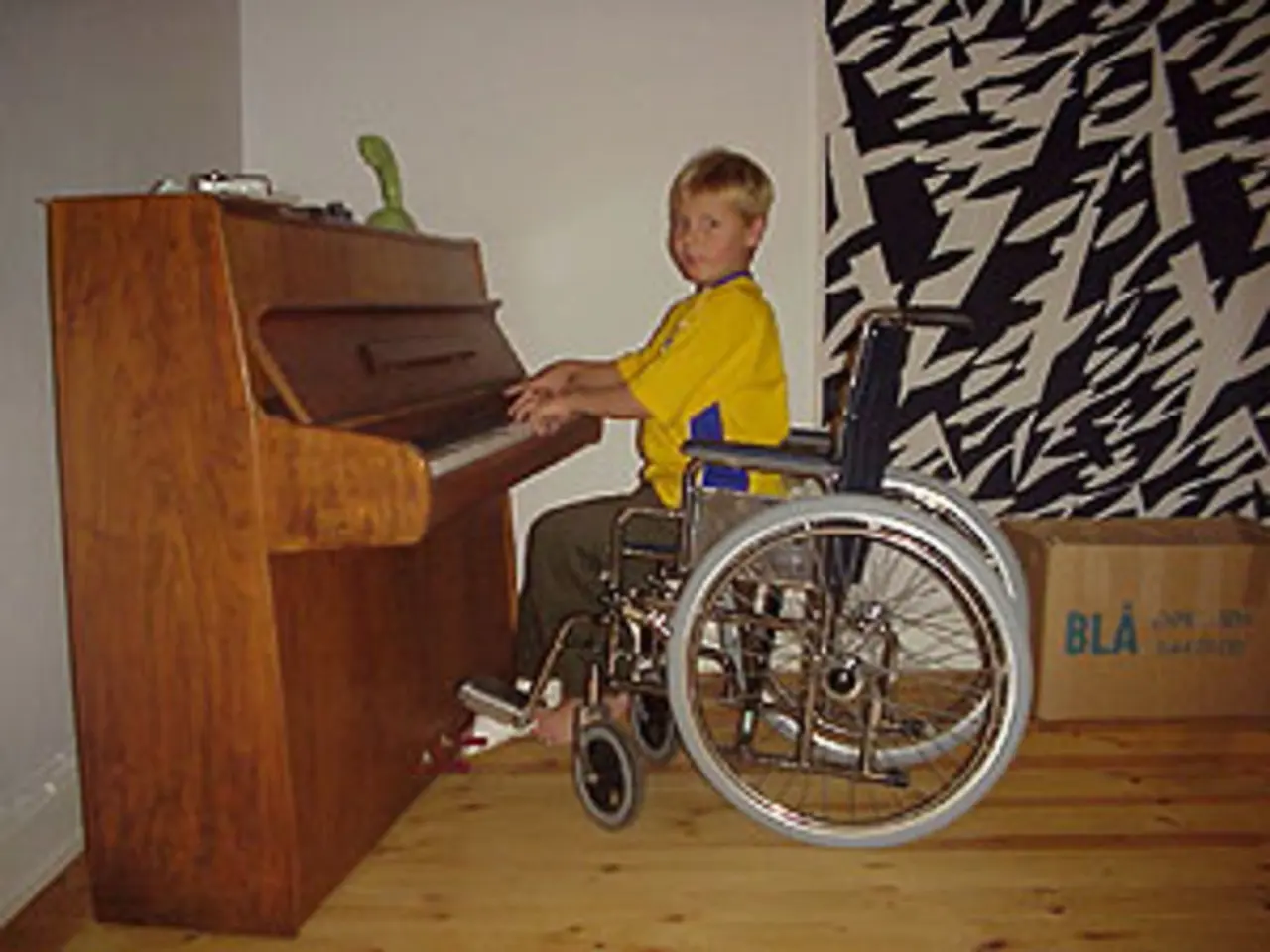Navigating Autism & Speech Delay in Your Kiddo
Distinguishing Autism from Speech Delay in Six-Year-Olds: Key Distinctives Explained
In this laid-back take, we'll help you understand the nuances between autism and speech delay in your 6-year-old. Let's dive into the nitty-gritty of speech development and unravel the mysteries of these common childhood issues.
Spotting Delayed Speech
A child struggling with speech can have difficulty forming sounds, expressions, and engaging in conversations. Here are some signs to watch out for:
- A narrow vocabulary and struggles to express thoughts
- Incorrect enunciation and pronunciation
- Struggling to grasp directions or answer questions
- Finds it hard to join in conversations with peers
If you notice this in your little one, it's essential to seek professional guidance and figure out the root of the issue.
Time for a Brain Boost!
Craving a brain boost for your kiddo? Check out our brain-friendly chocolate and savory spreads! Made with amazing Ayurvedic herbs, they'll help nourish your child's growing brain. Plus, they're non-GMO, gluten-free, dairy-free, and packed with Omega-3, protein, and Vitamin E! Say goodbye to refined sugar and palm oil and indulge in a guilt-free treat!
For more on the science behind Brain Booster's magical ingredients, click here!
Early Warning Signs of Autism
Autism, or Autism Spectrum Disorder (ASD), is a complex developmental disorder affecting social interaction, communication, and behavior. Keep an eye out for these early signs in a 6-year-old:
- Difficulty establishing eye contact
- Delayed or absent speech
- Repetitive behaviors or interests
- Overwhelm by sensory experiences
If any of these warning signs sound familiar, it's crucial to consult a healthcare professional immediately.
Getting it Straight: Speech Delay v. Autism
Distinguishing between speech delay and autism can be tricky, but understanding the differences is vital for getting the right care and support. Here's what sets them apart:
- Speech delay primarily focuses on speech and language development, while autism affects a broader range of social and communication skills.
- Speech delay typically doesn't interfere with social relationships, but autism may make it difficult for kids to interact with others and process social cues. However, with the right support, they can learn and grow!
- Speech delay often improves with treatment, particularly speech therapy, while autism is a lifelong condition that requires a multi-disciplinary treatment plan.
If you're unsure which condition your child has, don't fret! A healthcare professional can help you make the right call.
Speech Therapy & Treatment Options
Speech therapy is usually a key intervention for both speech delay and autism. A certified speech-language pathologist will work with you and your child to improve their communication skills and help them reach their full potential. Here are a few other treatment options for autism:
- Applied Behavior Analysis (ABA) therapy: A method for addressing behavioral challenges and social interactions.
- Occupational therapy: Helps improve fine motor skills, handwriting, coordination, and sensory processing.
- Educational interventions: Could include individualized education programs or special education services tailored to your child's specific needs.
Remember, early intervention is crucial! The sooner they get the help they need, the better the outcomes will be!
How to Find the Right Speech Therapist
To ensure your child gets the best possible care, do a little homework when choosing a speech therapist:
- Ask for recommendations from your pediatrician or other healthcare professionals.
- Research local speech therapy clinics or individual therapists and read reviews from other parents.
- Inquire about the therapist's qualifications and years of experience working with children with speech issues or autism.
- Find out what techniques they use and how they will work with your child.
Finding the right therapist can make a world of difference, so don't settle for anything less than top-notch care!
Time to Boost Brain Power!
Looking for more ways to support your child's development? How about our Brain Yoga exercise program or Brain Development diet plan? These tools rely on ancient wisdom and modern science to help your child reach their full potential, nourishing their mind and body!
Enrichment Data:
While both speech delay and autism impact communication, autism additionally affects social interaction and behavior. Closely observing social responsiveness, communication patterns, and behavioral differences can help parents identify whether their 6-year-old is struggling with speech delay or autism. Early intervention is essential to improve outcomes in both cases. If your child shows signs of delayed speech alongside social difficulties, restricted interests, or trouble responding to social cues, it's important to seek a professional evaluation to understand the nature of their communication issues and to start on the best treatment plan.
Speech delay typically involves trouble with producing sounds or words but normal attempts to communicate, while autism may include echolalia, impaired use of language, repetitive behaviors, and difficulty with social cues. Typically, speech delay children form close relationships and engage in social play, while children with autism often prefer solitude and struggle with social interactions.
Whether it's speech delay or autism, never hesitate to seek professional advice and support for your child's development. The journey to a brighter tomorrow starts today!
- Early identification of brain development issues, such as speech delay or autism, can be crucial for providing the right care and support for a child's growth and development.
- Seeking guidance from medical professionals is imperative when identifying medical conditions like autism, which may require a multi-disciplinary treatment approach, including education and self-development strategies, such as speech therapy.
- Ensuring proper nutrition plays a significant role in your child's brain development, neurological disorders, and learning processes, making it essential to make informed choices about their diet and supplements like brain-boosting chocolate spreads.
- Educational interventions, like special education services or individualized education programs, can cater to a child's unique needs and help them manage chronic diseases and learning difficulties that may arise due to speech delay or autism.







